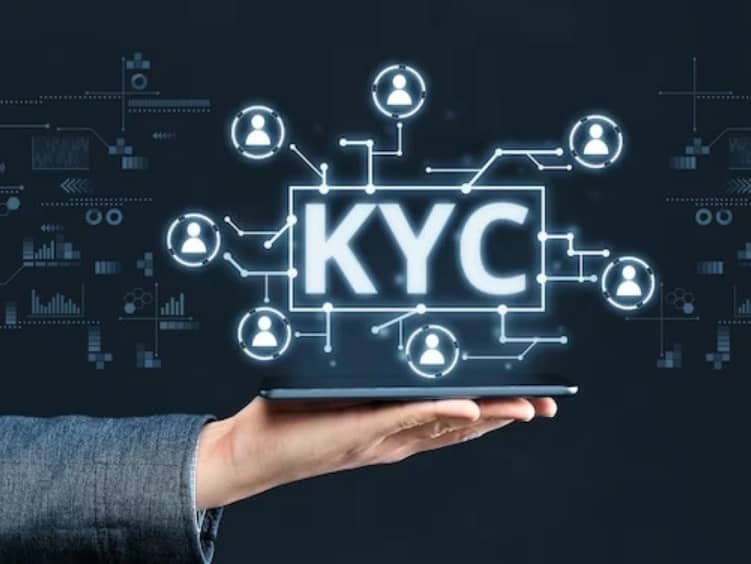위키 구독하기
Share wiki
Bookmark
Know Your Customer (KYC)
에이전트 토큰화 플랫폼 (ATP):에이전트 개발 키트(ADK)로 자율 에이전트 구축
0%
Know Your Customer (KYC)
**고객 알기(KYC)**는 고객의 신원을 확인하고 고객의 금융 활동 및 위험을 이해하기 위해 실사를 수행하기 위해 거래소에서 구현하는 암호화폐 거래소 플랫폼에서 수행되는 일련의 단계입니다. KYC 프로세스는 자금세탁 방지(AML) 정책 및 규정을 준수하기 위한 핵심 요구 사항입니다. [1]
KYC는 자금세탁, 테러 자금 조달, 탈세와 같은 불법 활동을 방지하는 데 도움이 됩니다. 모든 거래소 플랫폼은 KYC를 다르게 처리하지만 일반적으로 개인의 전체 이름, 생년월일, 거주지 주소 및 국가 ID 번호와 같은 정보는 불가피합니다. 또한 여권이나 운전 면허증과 같은 유효한 정부 발급 신분증 사진이 신원 확인을 위해 요청됩니다. 개인의 신원이 확인되면 거래소 플랫폼의 서비스에 액세스할 수 있습니다. [1][2]
개요
고객 알기(KYC)는 AML 정책 준수를 의미하는 고객 식별, 실사 및 지속적인 모니터링을 포함하는 자금세탁 방지(AML) 심사 절차입니다. 자금세탁 위험이 높은 가상 자산 산업에서는 자금세탁 및 테러 자금 조달을 막기 위해 기관에서 설정한 표준을 준수해야 합니다. 금융 활동 태스크 포스(FATF)는 FATF 회원 관할 구역에서 조치를 취할 수 있는 FATF 권고 사항으로 알려진 글로벌 표준을 설정하는 정책 결정 기관입니다. KYC 준수를 위해 FATF는 암호화폐 거래소가 위험 기반 접근 방식을 채택할 것을 권장했습니다. 이를 통해 저위험 개인은 더 간단한 조치를 취할 수 있는 반면, 고위험 개인은 더 집중적인 KYC 준수 조치를 받게 됩니다. [1][2][3]
KYC 프로세스
KYC 프로세스에는 고객 식별 프로그램(CIP), 고객 실사(CDD) 및 지속적인 모니터링의 세 가지 구성 요소가 있습니다. [4]
고객 식별 프로그램(CIP)
개인은 거래소 플랫폼을 사용하기 전에 자신이 누구인지 확인하기 위해 CIP를 거쳐야 합니다. 신뢰할 수 있고 독립적인 데이터가 필요하며 필요한 정보는 다음과 같습니다. [4]
- 전체 이름
- 생년월일
- 정부 발급 신분증
- 사업자 등록증 등
고객 실사(CDD)
CDD는 새로운 개인이 거래소 플랫폼을 사용할 때 발생할 수 있는 위험을 이해하고 그들이 금융 범죄를 조장하지 않도록 하는 것을 포함합니다. 자금세탁, 사기 등과 같은 범죄 활동의 위험이 있는 개인과 거래하는 위험을 줄입니다. CDD 위험 등급은 배경 조사, 거래 내역 검토 및 고객 설문 조사를 통해 금융 서비스 제공업체에서 계정에 할당합니다. [4][6]
지속적인 모니터링
범죄 활동의 징후가 있는지 사용자의 거래를 정기적으로 검토하는 것이 지속적인 모니터링을 구성합니다. 검사가 수행되고 의심스러운 활동이 감지되면 가상 자산 서비스 제공업체(VASP)는 FinCEN 또는 기타 규제 기관에 의심스러운 활동 보고서(SAR)를 제출해야 합니다. 지속적인 모니터링은 효과를 높이는 세 가지 요소가 있습니다. [4][5]
- 자동 알림: 의심스러운 거래가 있을 때 실시간 거래 모니터링 알림을 통해 플랫폼의 규정 준수 팀에 알립니다.
- 사용자 지정 알림 임계값: 조직의 규정 준수 팀이 위험한 거래에 대한 사용자 지정 알림 임계값을 설정할 수 있도록 합니다. 서로 다른 임계값을 사용하여 후속 조치가 필요한 과거 거래에 대한 알림만 받을 수 있습니다.
- 추가 수수료 없음: 규정 준수 팀이 이전 거래의 "재심사"를 수행하기 전에 의무적으로 지불해야 하는 요구 사항을 제거합니다.
암호화폐에서 KYC의 이점
KYC는 자금세탁 방지/테러 자금 조달 방지(AML/CFT) 준수 정책의 기초이며, 구현되면 암호화폐 회사는 준수 위험을 평가하고 평판 손상을 피할 수 있습니다. KYC를 통해 개인의 정확한 위험 프로필이 문서화되어 거래소에서 서비스를 오용하는 사용자를 쉽게 식별하는 데 사용할 수 있습니다. 다음은 KYC의 장점입니다. [2][6]
- 개인과의 신뢰와 투명성을 구축하는 데 도움이 됩니다.
- 금융 범죄의 위험을 낮춥니다.
- 암호화폐 거래소의 안정화에 도움이 됩니다.
- 회사의 미래 준수를 보장합니다.
잘못된 내용이 있나요?
